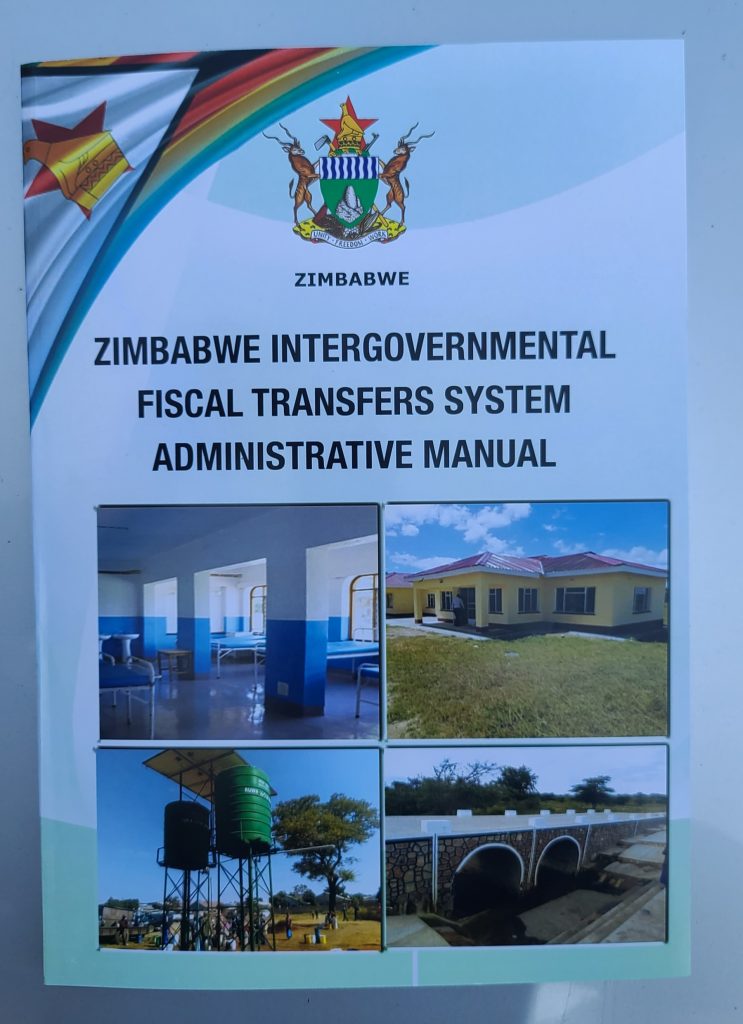
Professor Mthuli Ncube
By George Swarei
In a significant step towards fostering inclusive economic growth participation and promoting equitable development, Minister of Finance, Economic Development Prof Mthuli Ncube has officially launched the Zimbabwe Intergovernmental Fiscal Transfers (IGFT) System Administrative Manual.
The launch ran under the theme, “Fostering regional balance through Intergovernmental Fiscal Transfers.” The event was attended by various government officials, development partners, and local authorities.
Prof Ncube emphasized that the Devolution and Decentralisation agenda is a critical component of the National Development Strategy 1.
This agenda aims to devolve powers and responsibilities to Provincial/Metropolitan Councils and Local Authorities, aligning with the constitutional tenets. The overarching objective is to drive economic growth through a community-based, people-centered system that ensures equitable and sustainable development across the nation.

“This initiative resonates with our national vision of an ‘Empowered and Prosperous Upper-Middle Income Society by 2030,” Prof Ncube stated.
The Minister highlighted that devolution will enhance productivity, growth, and job creation, ultimately improving citizens’ welfare in the long term.
“This trajectory, championed by President Emmerson Mnangagwa’s mantra, ‘Nyika Inovakwa Nevene Vayo / Ilizwe Lakhiwa Ngabanikazi Balo,’ will lead to substantial improvements in the quality of life for ordinary Zimbabweans,” he added.
Prof Ncube underscored the importance of community involvement in local governance, enabling active contributions to issues affecting their livelihoods, such as education, healthcare, water, sanitation, and infrastructure. He also noted that successful implementation of the devolution agenda requires continuous commitment and collaboration among stakeholders.
The newly launched manual aims to provide technical guidance to lower tiers of government for managing fiscal grants and to ensure accountability and transparency in utilizing these funds. The manual covers critical areas such as tiers of government, grants allocation criteria, eligible expenditures, institutional framework for managing IGFTs, financial management framework, and monitoring and evaluation.
The government has adopted an appropriate allocative formula to address regional and provincial developmental disparities, with the formula reviewed every five years or as necessary to reflect emerging changes. Minister Ncube reaffirmed the government’s commitment to allocating no less than five percent of national revenues to provinces and local authorities, in line with Section 301 (3) of the Constitution.
“This manual ensures that resources are utilized for their intended purposes and align with community development aspirations and priorities. It demonstrates the Second Republic’s commitment to devolution as a cornerstone for unbiased and just governance, driving inclusive socio-economic development,” said Prof Ncube.
Secretary to the Treasury Dr George Guvamatanga also delivered remarks at the launch, emphasizing the importance of devolution as a critical building block towards achieving Zimbabwe’s National Vision 2030. He highlighted the government’s commitment to a transformative and inclusive development agenda, ensuring no one and no place is left behind.
“The New Dispensation led by His Excellency, President Cde. E. D. Mnangagwa, began operationalizing the provision of at least 5% of government revenues to lower tiers in 2019, as stipulated in the Constitution,” Dr Guvamatanga stated.
He acknowledged the challenges faced due to the absence of a clear IGFT manual, which affected various aspects of the project cycle, including conceptualization, appraisal, implementation, contract management, monitoring, evaluation, accounting, and reporting.
To address these challenges, Dr Guvamatanga noted that the government established an inter-ministerial Task Force led by the Treasury and the Ministry of Local Government and Public Works to develop the IGFT Administrative Manual.
The formulation process involved extensive consultations with various stakeholders and benchmarking study tours to countries like Zambia, Kenya, and Cambodia, which have successfully implemented IGFT systems.
Dr Guvamatanga expressed appreciation for the support from cooperating partners such as UNICEF, the World Bank, and UNDP in providing experts and funding for developing the manual. He emphasized the importance of sustained partnership and collaboration, as well as ongoing capacity-building activities supported by these partners.
He reiterated the government’s openness to working with all relevant stakeholders in post-launch activities to improve public service delivery.

